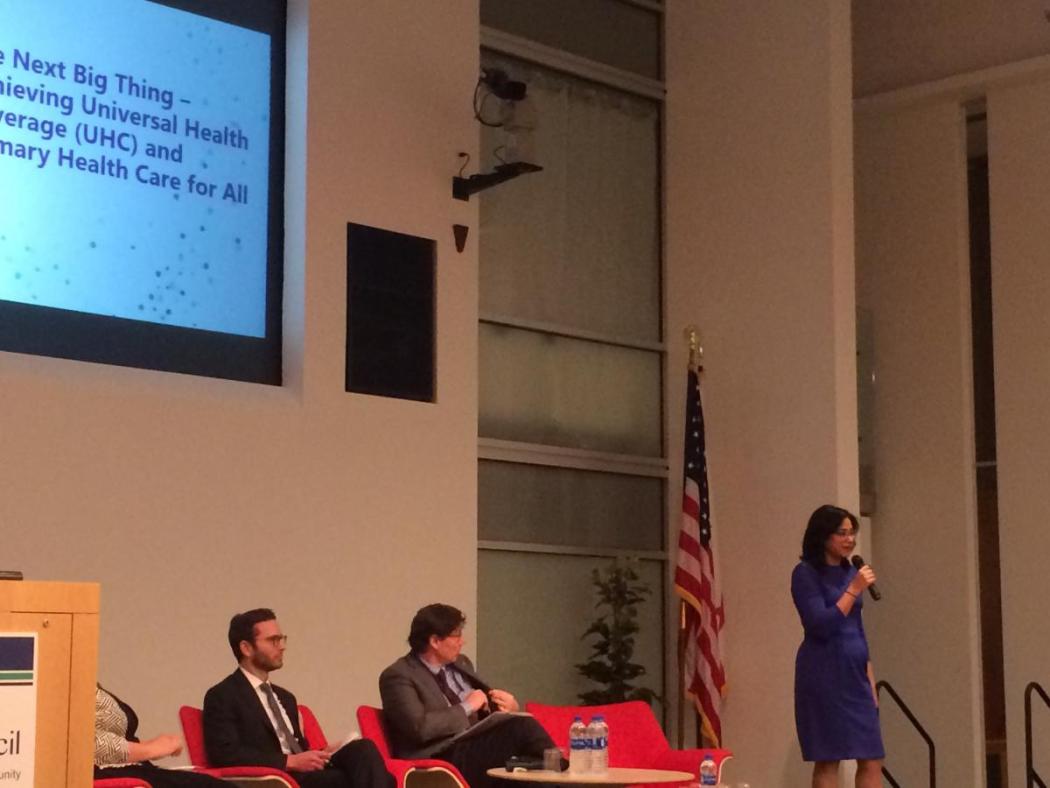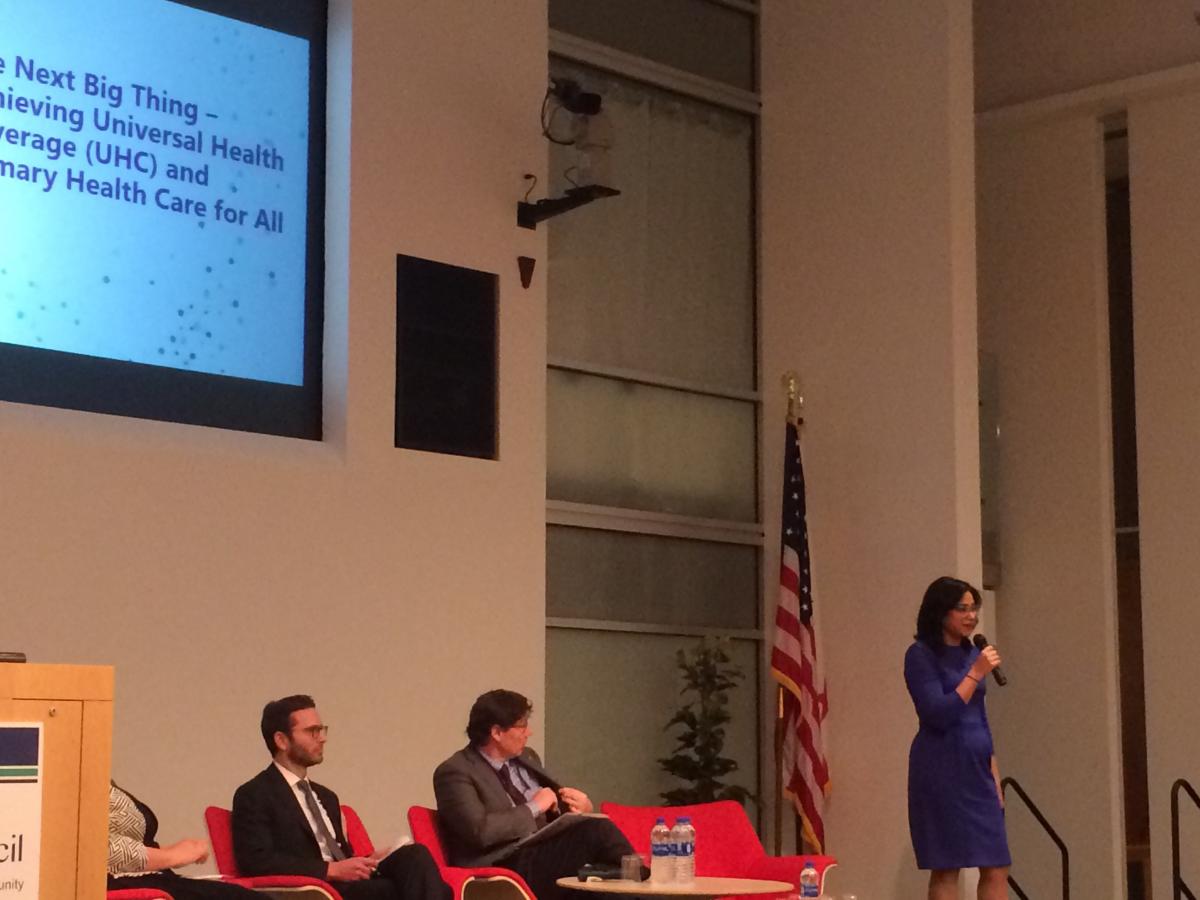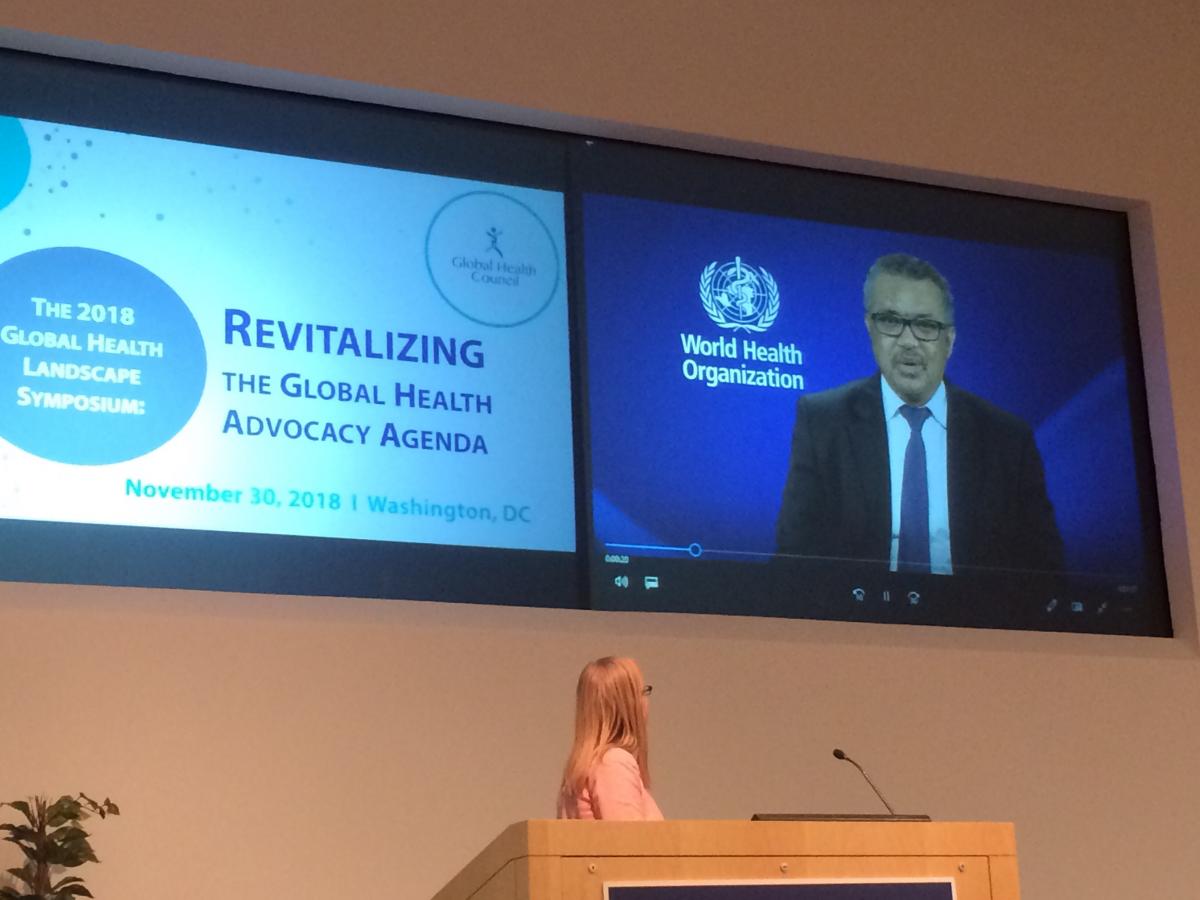The Current Climate of Global Health and Health Worker Advocacy: Global Health Landscape Symposium

At the Global Health Landscape Symposium last week policy and program leads in global health came together to reinvigorate the advocacy agenda, take stock on some of the changes taking place in the global health landscape, and discuss solutions to upcoming challenges.
Discussions on this day covered the role of the private sector, new funding mechanisms, innovation and tradition, the overall climate of global health, and achievements and setbacks. Much of the day was dedicated to universal health coverage (UHC), with breakout sessions discussing this in both the US and multilateral context, ahead of the UN high-level meeting in 2019. Below are my key takeaways from the day, with the Frontline Health Worker Coalition’s advocacy goals in mind.

Roopa Dhatt of Women in Global Health led a panel discussion on achieving universal health coverage
What does it mean to be an advocate?
After the moderator Eric Williams asked the audience to raise their hands if their organization worked in advocacy, the resounding response made me reflect on what the role of an advocate is, and what it means to identify as such. Carolyn Reynolds of PATH carried this thought saying that we should all be advocates, and that there should be no silos in global health. Advocacy should start with our mission, and everyone working towards that mission can and should advocate for its work. In order to achieve this, we need advocates at all levels, especially at the grassroots. For the Frontline Health Workers Coalition, this means continuing to provide platforms for frontline health workers to share their experiences with policy-makers.
When talking about UHC we should focus on access, as well as on coverage.
In a panel discussion on achieving universal health coverage and primary health care for all, James Fitzgerald of PAHO/WHO gave an excellent dissection of UHC, and how this may differ across countries with distinct health systems. Fitzgerald stressed the importance not just of health coverage, but on access to health, a core component of achieving UHC that is too often left out of the discussion. He urged that in order to achieve primary health care for all, we need to “remove the barriers and inequities” that restrict so many people’s access to comprehensive health services. We should build and strengthen? health systems and focus these existing systems toward meeting prioritized health needs. He reminded us to re-read the visionary Alma Ata Declaration of 1978 and see where we have digressed in the pursuit of health for all. Frontline Health Workers Coalition members believe that investing in a robust health workforce is central to both PHC and UHC and is the key ingredient to improving access to health services.
While we celebrate the successes of many global meetings and commitments, we need to hold governments accountable for what they promise.
The first panel session of the day discussed the complexities of being an advocate in a busy global health space, the risk of saturation, the challenge of responding to pressures to report on results, and the need to hold governments accountable to the promises they make at high-level meetings. This should be present in our mind as we turn our attention from the 2018 UN high-level meetings on tuberculosis and noncommunicable diseases, to the 2019 high-level meeting on UHC. A strong health workforce is necessary to achieve every global health goal, we hope that policy-makers will see that investing in the system itself will boost accountability at all levels.

Dr Tedros, the director-general of the World Health Organization called in to give an address
We need an emphasis on precision and specificity, both in our messaging and in our work.
A central theme of the day was specificity and precision. This is important both in preparation for the 2019 UN high-level meeting on UHC, in our discussions with policy-makers, and our broader advocacy work. Defining what we mean by universal health coverage and clarifying its relationship with primary health care should be crucial to our advocacy work. Elisha Dunn from PAI reminded us that strategies should be country-specific as there is no “one size fits all” way to address UHC. We as a community need to be clear on our definitions, goals, and expectations. Both for implementing programs and for advocacy, clarity and precision are essential to provide a nuanced and country-specific approach.
Being an advocate for frontline health workers, the common thread of a robust, well-trained and well-funded health workforce leaps out to me, yet it is up to us to convince policy-makers of this. The Frontline Health Worker Coalition members believe that a collective push for global health equity and universal health coverage should focus on building strong health systems and workforces, that will underpin all specific focus areas. At every level, from the grassroots all the way to presidential and multilateral level we must be specific in our implementation and messaging. We look forward to seeing the ways in which the global health community builds on the learning of this year, to rally around this common goal of UHC.
Jessica Turner is a Global Health Corps fellow working for IntraHealth International’s Advocacy team on the Frontline Health Workers Coalition and the Safeguarding Health in Conflict Coalition.
